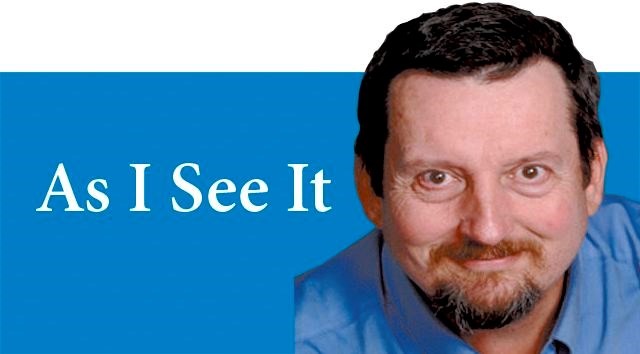Taxes. 'Tis impossible to be sure of anything but Death and Taxes, or so said Christopher Bullock in 1716.
It is an oft-repeated idiom that taxes are our unavoidable lot in life. As we approach the federal budget, I am sure we are going to be hearing a lot about tax cuts. Promises of tax cuts to individuals, families and business always play well in a pre-election budget.
At the same time, we have a tremendous infrastructure deficit in this country. Consider Prince Rupert, a town of 15,000, which is presently under a "boil water" advisory because their drinking water is not considered safe nor has it been for a while. Or the sinkholes emerging under city streets in Prince George. Or the traffic congestion - should I say parking lot? - which emerges daily through the Deas Island tunnel between Richmond and Delta.
Billions and billions of dollars are required to upgrade the nation's infrastructure. Where is this money going to come from?
We could borrow it but then the national debt increases. We can run deficits and although that sounds nicer, they have the same result - our national debt increases. We could turn to the private sector, but what are the incentives? Where's the profit?
Tax cuts don't build infrastructure.
The U.S. government shutdown sparked a rather amusing but pointed exchange on the Daily Show. The story was about federal workers starting GoFundMe campaigns to pay for daily necessities. One of the correspondents, Michael Kosta, suggested this would be a good way to run government, period. All of the workers could solicit direct funding from the public.
To paraphrase their discussion, host Trevor Noah then asked which servants should get funded. Kosta was in favour of funding the ones he wanted to help. Noah made the point that he might have a different group of workers he would be in favour of funding.
Kosta then conceded everyone should be funded as they do important work. But if we are going to fund everyone, Noah asked, how are we going to do that? To which Kosta suggested everyone could contribute a percentage of their income with those making more money contributing a little more.
"And how would this be managed?" asked Noah. Well, replied Kosta, you would hire some people to collect from everyone. To which Noah asked "But isn't that just government?"
I am probably not doing the exchange justice but the central theme was a recognition we need the services provided by government and we need to pay for them somehow. Taxes are the cost of living in our society. They provide the things we need and want.
Which brings us to the report from the Speaker of the Legislature on the misdeeds of the clerk and sergeant-at-arms. The amount of money involved is not really a lot - although it is likely more than I will make in my lifetime. But the principle that someone would use government funds in such a way is galling. After all, clothes, paid-out unapproved vacation time, a truckload of liquor and an incredibly expensive wood splitter are not what we thought we were buying when we paid our taxes. We thought we were supporting clean drinking water for Prince Rupert or medical care for seniors.
This sort of waste undercuts our trust in the government. There are around 40,000 civil servants in the province and only two are singled out but those two bring into question how our money is being spent across all ministries. And be assured, it is our money - yours and mine - which is being spent by our government on our behalf.
I don't have an issue paying my fair share to support doctors and nurses or road construction project or clean drinking water infrastructure. But I do have issues with supporting wasteful spending. Maybe we should have GoFundMe campaigns for each worker. We can contribute to the employees or the hospitals or the roads we think are important.
Of course, the richer parts of the province would get all the benefits and the poorer areas would be stuck without services. Perhaps there needs to be a mechanisms to even it out and have each contributor's share spread around to all the doctors and nurses and road construction projects and clean drinking water. Maybe there should be a central repository to collect all of the money and allocate it reasonably. Hold on, maybe there should be taxes.
As we build up to the federal election, I believe we're going to hear from Andrew Scheer and the Conservatives a lot about cutting taxes and avoiding unaffordable tax increases. But what he'll really be saying is he doesn't want to pay for the things we collectively use or enjoy. Low taxes and replacing infrastructure are not compatible propositions.



